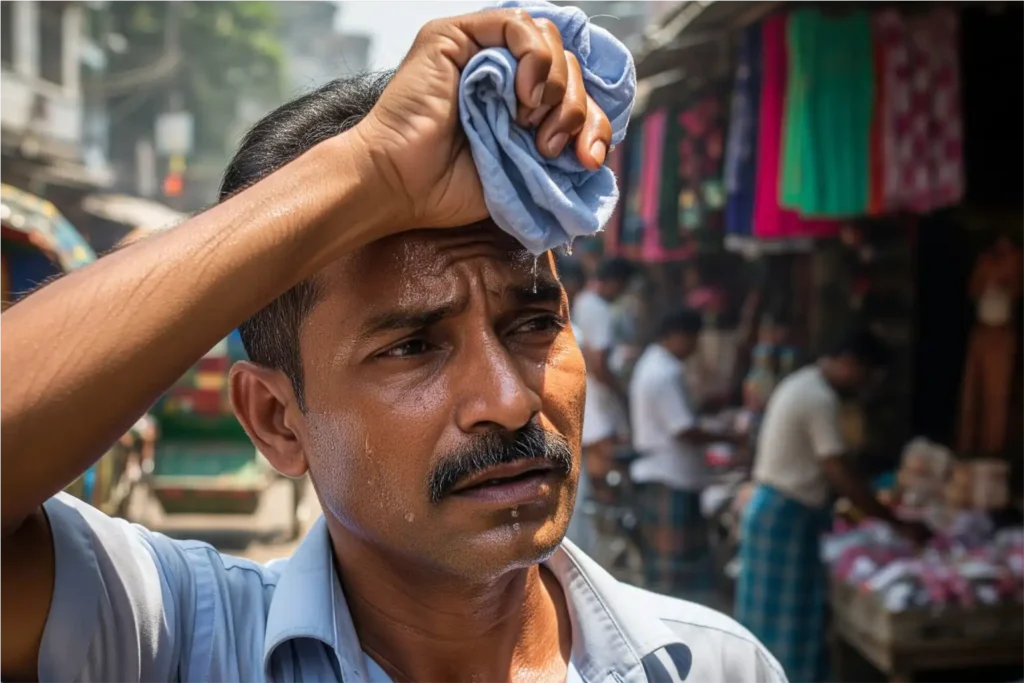
Heat and heart issues: Extreme heat combined with high humidity can sharply increase the risk of heart attacks and strokes, according to a new study from Tulane University.
Researchers found that the likelihood of visiting the emergency room for a heart-related problem was six times higher during extremely hot and humid days compared with moderate conditions. The study, published in Science of the Total Environment, analysed more than 340,000 emergency visits in Dhaka, Bangladesh, a city known for its intense heat and humidity, between 2014 and 2019.
On days of extreme heat with low humidity, the risk of a heart-related emergency rose by 4.4 per cent. But when relative humidity exceeded 82 per cent, that risk jumped dramatically to 26.7 per cent. The researchers noted that heat alone, defined as temperatures above 84°F (29°C), was associated with an 8 per cent increase in emergencies, while humidity on its own showed no significant link.
Also Read | Study warns India’s nights are heating up faster than days
“These findings show we need to consider heat and humidity together when we discuss climate change policy,” said Mostafijur Rahman, lead author and assistant professor of environmental health sciences at Tulane University. “We know extreme heat can affect health, but the combined effect with humidity was far greater than expected.”
The increase in risk was consistent across both age and sex groups. Scientists explained that high humidity impairs the body’s ability to cool itself by preventing sweat from evaporating, which forces the heart to work harder.
“There are billions around the world, from Southeast Asia to Africa, who are directly impacted by rising temperatures but have little access to air conditioning,” Rahman added. “Governments need to develop systems to warn cities of dangerous heat and humidity. For individuals, the best defence is to stay hydrated, avoid the sun during peak hours, wear light clothing, and seek air-conditioned spaces when possible,” he added.
Bangladesh is among the countries considered most vulnerable to heat-related illness.
(Source: Tulane University)








